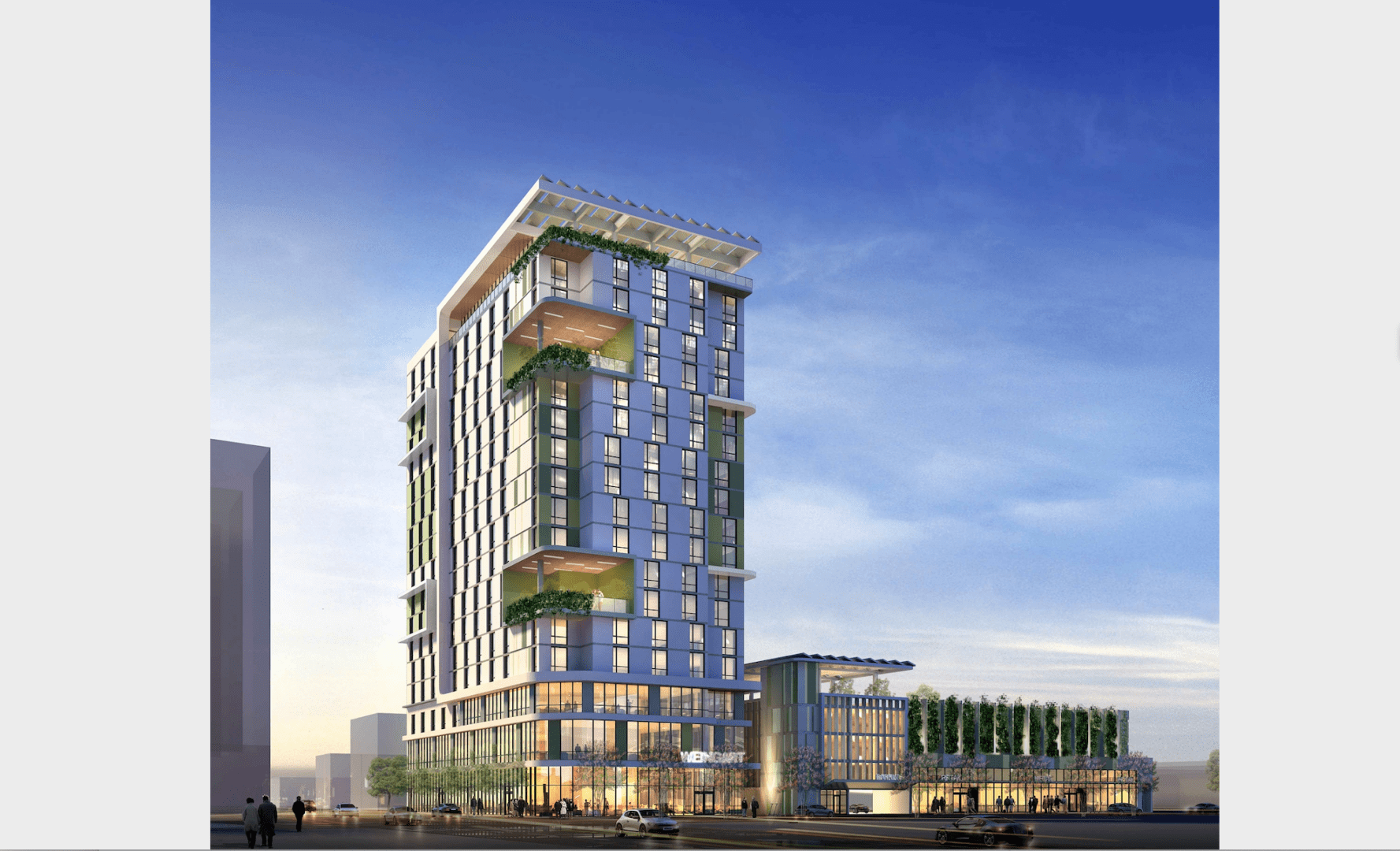 View Winners →
View Winners → City officials break ground on high-rise housing project in DTLA

City leaders and housing developers broke ground Thursday on the largest 100% affordable supportive housing development in Los Angeles, representing what they said is a “milestone” in the city’s efforts to address the homelessness crisis.
Representatives from LA Mayor Karen Bass and Gov. Gavin Newsom’s offices and Assemblyman Miguel Santiago were joined by developers Related California and the Weingart Center Association for the ceremony. The project called 600 San Pedro will be a 17-story, 302-unit mixed-use building that will be developed on a 1.12-acre parking lot in downtown, located at 600 S. San Pedro St.
It will also feature a four-story parking structure with retail space on the ground level.
“Los Angeles needs all of us, from government to nonprofit and the private sectors, working to urgently confront our homelessness crisis by building more housing and providing lifesaving services,” Bass said in a statement.
The apartments will come fully furnished with appliances, furniture and air conditioning. Additionally, the project will include a career center, library, laundry room and fitness area to cater to residents’ needs and intended to build community.
Development will take place in two phases, with construction occurring simultaneously. The project is expected to be completed by June 2025.
“I want to thank Related and Weingart for their ongoing commitment to building more permanent supportive housing so that people who come inside from tents and encampments can move into homes and communities where they can live healthy, full lives,” Bass said in a statement.
Weingart Center will provide “high-quality” services to its residents, such as on-site case management, mental and physical health care, substance use services, employment and job training assistance, educational support, among others. The center aims to equip residents with the “tools necessary to continue to stabilize their lives after experiencing homelessness.”
The county of Los Angeles defines permanent supportive housing as “a type of housing that provides long-term rental subsidies and intensive case management services” to individuals who have experienced chronic homelessness and other health conditions.
According to Adrianne Beasley, director of permanent supporting housing for Weingart Center, the building will be ready for residents some time after the project is complete.
A number of units will be designated for veterans — the exact number is yet to be determined. The center works with potential applicants to gather all required documentation, so applications can be accepted as soon as possible.
Jericho Kilpatrick, a development associate with Weingart, said tenants are required to make rent and honor a lease agreement just like any other renter in the city. If the tenant breaks their lease, that is means for removing the tenant.
All units are income based, meaning residents pay some amount of rent. The rent amounts are determined by using a percentage of their monthly income, Beasley wrote in an email to City News Service.
For the majority of residents, monthly income comes from their Social Security, disability, VA pension, general relief or other programs. The remaining amount for each unit is covered by federal subsidies such as the joint supportive housing program by the U.S. departments of Housing and Urban Development and Veterans Affairs, project-based vouchers, Section 8 housing or other means.
“Once stably housed, the changes we see in our residents is amazing,” Beasley wrote in an email to City News Service. “We operate using the Housing First model — basically, no other needs can be met if you do not have housing first.”
She noted that many people who are unhoused do not get their mental health needs and basic physical health met.
Many unhoused individuals that live in permanent supportive housing and receive the necessary services become sober, go to college and move out of the building to purchase their first home.
“Our residents have been marginalized and unseen for so long, just the sense of belonging to a permanent supportive housing and the knowledge that our on-site service providers are there for no other reason to help them remain stably housed is life changing,” Beasley wrote in an email.








































































































